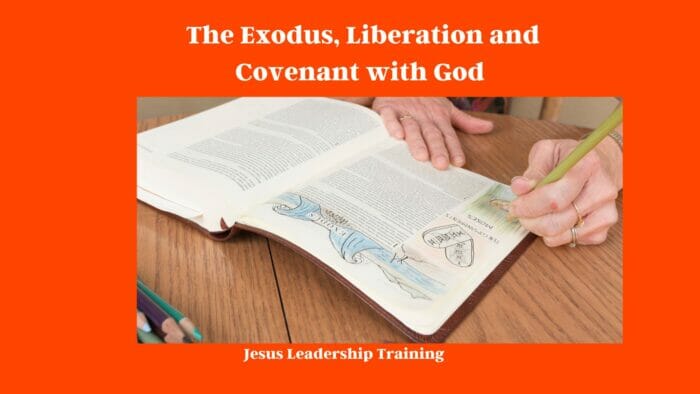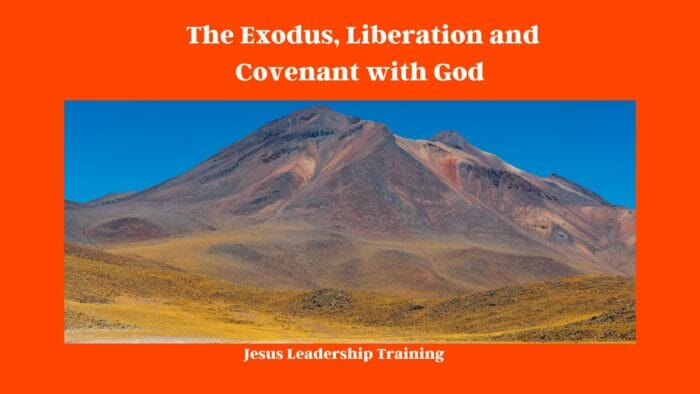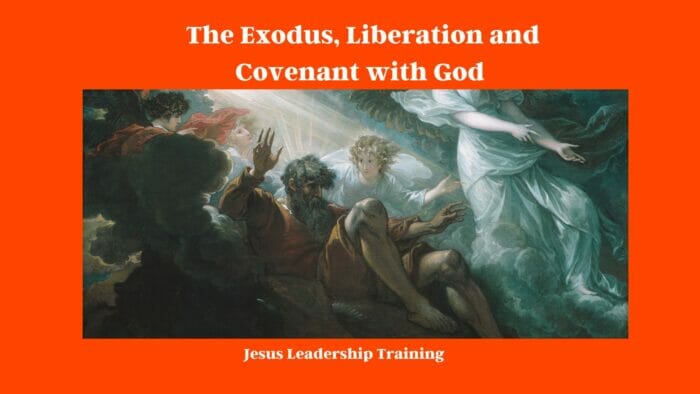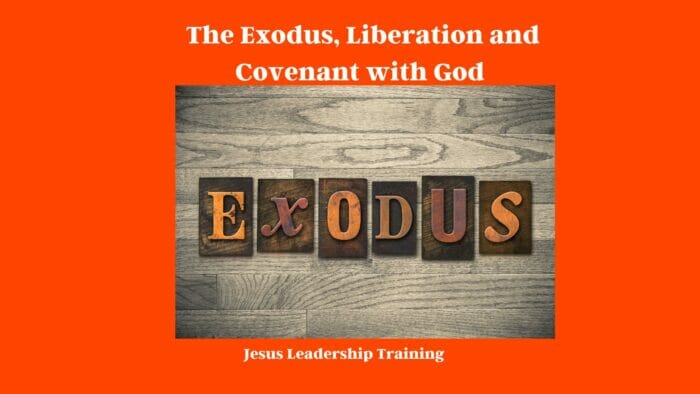Every so often, a tale of grandeur, deep faith and human endurance breaks through the annals of history, leaving a profound mark on humanity. The story of The Exodus: Liberation and Covenant with God is a textbook example. This emblematic narrative from the Bible depicts the Israelites’ liberation from Egypt and the subsequent covenant they make with God. It’s a tale of fortitude, faith, and liberation, blended seamlessly with divine intervention and human resilience.
Table of Contents
The Exodus: Liberation and Covenant with God – The Beginning
Our story kicks off with the plight of the Israelites in Egypt. Subjected to unbearable slavery under the Pharaoh, they cried out for liberation. And as the saying goes, “the squeaky wheel gets the grease”, their plea was heard by none other than God.

The Rise of Moses: An Unlikely Hero
Enter Moses – a man born in the midst of turmoil but raised in the lap of luxury, only to later embrace his true calling. He’s quite the character, an unlikely hero tasked with freeing his people. His life itself could be a roller-coaster ride of a novel.
The Burning Bush: A Divine Assignment
The pivotal turning point in Moses’ life came with his encounter with the burning bush. The bush, ablaze yet unscathed, served as the divine medium for God’s message. The conversation they had wasn’t just a passing the torch, but a flaming bush of responsibility!
The Ten Plagues: Warnings Unheeded
Next, we find Moses and his brother Aaron trying to negotiate the Israelites’ release. When diplomacy failed, God unleashed ten plagues upon Egypt, each one more devastating than the last. It’s a tale as old as time; when push comes to shove, drastic measures become the order of the day.
Passover: A Tradition Born
In the wake of the tenth plague, the first Passover was observed. This sacred tradition commemorates God’s mercy and the deliverance of the Israelites. It’s more than just a holiday; it’s a poignant reminder of their journey from bondage to freedom.
The Exodus: The Great Escape
Finally, the Israelites were freed. They embarked on an exodus, a mass departure, navigating through harsh terrains, grumbling bellies, and wavering faith. You could say, they literally walked through fire and water to find their freedom!

Crossing the Red Sea: A Miraculous Path
At the Red Sea, with Pharaoh’s army in hot pursuit, the Israelites faced their greatest test. But lo and behold! Moses, with a little divine help, parted the Red Sea, paving a miraculous path for their escape.
Mount Sinai: The Covenant with God
Next up, Mount Sinai! Here, the Israelites made a covenant with God, agreeing to obey His laws in exchange for His protection. It wasn’t just a contract, but a deep, spiritual bond, one that forged their collective identity as God’s chosen people.
The Ten Commandments: The Divine Code of Conduct
At the heart of this covenant were the Ten Commandments. These divine directives served as a moral compass, guiding the Israelites’ conduct and their relationship with God. Talk about taking law and order to a higher level!
The Golden Calf: A Slip in Faith
Despite the miraculous events and divine revelations, the Israelites faltered, crafting a golden calf as a deity. It just goes to show, even in the face of the divine, old habits die hard.
Moses’ Plea: A Second Chance
Thankfully, Moses intervened on behalf of his people, and God, in His mercy, forgave them. This episode underlines the power of repentance and the enduring grace of God.

Building the Tabernacle: A Dwelling for the Divine
Following their slip-up, the Israelites build the Tabernacle, a mobile dwelling place for God. It served as a constant reminder of their divine bond and the presence of God amidst them.
The Journey to the Promised Land: An Odyssey of Faith
From Sinai, the Israelites commenced their journey towards the Promised Land. This part of the Exodus isn’t just a geographical journey, but an odyssey of faith, filled with trials and tribulations.
The Spies Report: Fear and Despair
As they neared Canaan, Moses sent out spies who brought back daunting reports, sending waves of fear and despair among the Israelites. It’s the classic case of “so close yet so far.”
Forty Years in the Wilderness: A Test of Faith
Consequently, the Israelites ended up wandering in the wilderness for forty years. It was a harsh but necessary period of purging, preparation, and reliance on God.
Moses’ Last Days: The Final Sermon
In his final days, Moses delivered profound sermons, reiterating God’s laws and their covenant. His parting words served as a beacon guiding the Israelites towards their destiny.
Joshua’s Leadership: A New Dawn
With Moses’ passing, Joshua took up the mantle of leadership. The Exodus thus transitioned from liberation to settlement, marking a new dawn for the Israelites.
Conclusion
The Exodus: Liberation and Covenant with God is a profound narrative of faith, endurance, and divine-human interaction. It showcases the transformative power of liberation and the forging of a sacred bond with the divine.
FAQs
- What is the significance of the Exodus in Jewish tradition? The Exodus is central to Jewish identity. It encapsulates their liberation from slavery, their covenant with God, and the divine laws that shape their moral and religious lives.
- How did the Exodus influence the Israelites’ relationship with God? The Exodus marked a pivotal transition from servitude to freedom and established a direct, covenant-based relationship between the Israelites and God.
- Why did the Israelites wander in the wilderness for forty years? The forty-year period in the wilderness was a time of testing and preparation for the Israelites. It allowed them to grow in faith and dependence on God.
- What role did Moses play in the Exodus? Moses was the key figure in the Exodus. He acted as the mediator between God and the Israelites, leading them out of slavery and establishing the covenant with God.
- What is the Passover and why is it important? The Passover is a Jewish festival commemorating the liberation of the Israelites from Egyptian slavery. It serves as a reminder of God’s mercy and deliverance.
- What are the Ten Commandments? The Ten Commandments are a set of divine laws given by God to Moses on Mount Sinai. They form the moral and religious foundation of the covenant between God and the Israelites.




